Ruth Harris's Blog, page 12
July 4, 2013
Happy Fourth + a 99c sale!
Have a happy and safe Fourth!
From Hannibal Lector to Mrs. Danvers. On July 8 I'll be writing about Scene Stealers at Romance University. Don't miss it!
ZURI: a romantic love story set in an African animal orphanage. Be transported to another world for the weekend! No security lines. No airport. No hassles. Just beauty and pleasure!
"Masterful!" "Wonderful!" All 5-star reviews!
Reduced to 99c through Sunday July 7 only.
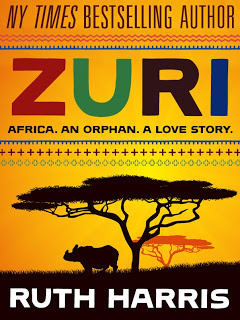 Kindle | Nook
Kindle | Nook
From Hannibal Lector to Mrs. Danvers. On July 8 I'll be writing about Scene Stealers at Romance University. Don't miss it!
ZURI: a romantic love story set in an African animal orphanage. Be transported to another world for the weekend! No security lines. No airport. No hassles. Just beauty and pleasure!
"Masterful!" "Wonderful!" All 5-star reviews!
Reduced to 99c through Sunday July 7 only.
 Kindle | Nook
Kindle | Nook
Published on July 04, 2013 06:03
June 27, 2013
Sex, rejection, a glam exec and a pitiful poet.
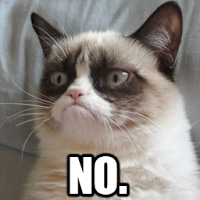 When I was a child slogging through the slush pile at Bantam, one of the editors was having an affair with a hotshot publishing executive, older guy, quite glam. He was married, natch, but that didn't stop him from being possessive and very jealous.
When I was a child slogging through the slush pile at Bantam, one of the editors was having an affair with a hotshot publishing executive, older guy, quite glam. He was married, natch, but that didn't stop him from being possessive and very jealous.She lived in the Village. On West Fourth Street near a neighborhood bar that served really good hamburgers. There was also a local poet, a fixture in the nabe. The reigning Crown Prince of Rejection, he couldn't get his poetry published no matter how hard he tried. He was a real sad sack, but a nice guy who became a community project: people gave him money, brought him food, listened to his tales of woe at the hands of clueless publishers, etc.
Anyway, my friend is walking home from work one evening, runs into the poet and invites him for a hamburger. They're sitting in a booth along a wall of windows having their burgers when along comes the hotshot exec. Exec takes one look, gets the (erroneous) picture. He waits until they leave the bar, goes up to the poet and, without a word, takes a swing at him, sending him sprawling to the sidewalk. Exec, crazed with jealousy, hurls a curse and barrels off.
My friend helps the poet get up. He (the poet) brushes himself off, looks at her and shakes his head. "I don't know why people don't like me," he says.
Yet another rejection story. As I said in an earlier post, most of the time it's nothing personal.
Published on June 27, 2013 07:02
June 20, 2013
"Thorny, fearless, well-dressed" — and she kicks butt.
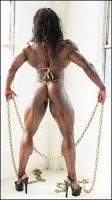 We all know how memorable an OTT character like Hannibal Lector is. But OTT female characters can be equally memorable.
We all know how memorable an OTT character like Hannibal Lector is. But OTT female characters can be equally memorable.Before there was The Girl With The Dragon Tattoo and Lisbeth Salander, there was Smilla Qaavigaaq Jaspersen, the heroine of a novel called Smilla's Sense of Snow by Peter Hoeg. Smilla is part Inuit and lives in Copenhagen.
According to the flap copy of the FSG edition, "she is thirty-seven, single, childless, moody, and she refuses to fit in." She is complex, thorny, obstinate, blunt, fearless, she loves clothes and, when required, she can—and does—kick ass. Like Lisbeth who's a talented computer jock, Smilla has her tech side and sees the beauty in mathematics.
Thinking about Lisbeth and Smilla, I began to realize that the unconventional female character, like Joseph Campbell’s Hero With A Thousand Faces, appears in fiction again and again in different guises. Clarice Starling, the FBI agent in Silence of the Lambs (played by Jodie Foster in the film), must face her fears—and Hannibal Lector—to solve the identity of a serial killer but she has no personal life that we know of. She's a nun, FBI-style, and she doesn’t give up until the case is solved.Jane Tennison, the DI in television’s Prime Suspect, played by Hellen Mirren, is a “woman of a certain age” as they say in France. Her love life is on the gritty side, she drinks too much, she can be flinty—not flirtatious. The men she works with give her a hard time and she isn’t shy about pushing back.Cable television, always quite willing to break molds, has come up with Carrie Mathison, the bi-polar CIA agent in Homeland, who has sex with the suspected terrorist. Carrie is also “single, childless, moody, and she refuses to fit in.”The young CIA officer, Maya, played by Jessica Chastain in Zero Dark Thirty, is tough-minded, focused and willing to contradict senior officers in her quest to find the al Qaeda terrorist, Osama bin Laden.Nurse Ratched, in One Flew Over The Cuckoo’s Nest. Wikipedia describes her like this: “the ward is run by steely, unyielding Nurse Mildred Ratched (Louise Fletcher), who employs subtle humiliation, unpleasant medical treatments and a mind-numbing daily routine to suppress the patients.”And while we’re in the medical dept: Annie Wilkes, a former nurse, cuts off her favorite writer’s foot with an axe and cauterizes the wound with a blowtorch. Played by Cathy Bates in the movie, Annie is the unforgettable, unconventional woman in Stephen King’s bestseller, Misery.Sigourney Weaver as Riley, the warrant officer in Alien, is courageous, authoritative and has no personal life that we know of. She’s a sci-fi heroine who must rely on her own guts, brains and fearlessness.Mrs. Danvers, the creepy housekeeper with no first name in Rebecca, is dedicated to her dead employer, the first Mrs. Maxim de Winter. She is intimidating, manipulative and willing to drive the second Mrs. DeWinter to suicide.Glenn Close, the murderous seductress in Fatal Attraction lives alone, has no family that we are aware of and is psychopathically determined to get what she wants.Judi Dench as M is the head of MI6. She is blunt, unmarried as far as we know although in one scene it is clear she is sleeping with a male companion. She is James Bond’s boss and does not flinch from bossing him around and dressing him down for his recklessness. So what do these women have to do with you? What does the tough, determined, bossy, or downright crazy woman have to offer?
The “difficult” female character can—and will—do the shocking, the unexpected and, as a consequence, will give your story an immediate jolt of energy. She is the character who doesn’t fit the mold. She is the boss (M), the beginner (Clarice Starling), the domestic employee (Mrs. Danvers).The “difficult” female character will live in the “wrong” neighborhood, drink too much, have sex with the “wrong” partners—all good ways to add sizzle and wow! plot twists.She will not take her niece or nephew to Disney World but to a stock car race one day, to the ballet the next and teach him or her how to run a bulldozer, how to roast the perfect chicken and how to rob a bank. She will most likely not be a secretary or a dress designer but a (believable) nuclear physicist, petroleum engineer or cat burglar. If she is a secretary or dress designer, it’s because she’s got a dramatic secret that will give your fiction a buzz.She will never do the expected or the conventional: she will not give up a career or a promotion for Mr. Right. She will not fall madly in love, swoon into someone’s arms and make irrational choices although she might be an excellent and loyal lover. She can be stubborn, pathological, repellent but she can—and will— rescue you from the plot blahs and help you break through a block.
I know this because a holy terror named Chessie Tillman bailed me out of a dead end in Brainwashed, a thriller that takes place in the bleak, paranoid 1970’s of Watergate and Vietnam War. Because the book is a political thriller, I needed a politician and I had one. I thought. Except he was way too realistic, so stupefyingly boring he brought the plot, the book—and me—to a dead halt.
I fretted and stewed. Bitched and complained. I was blocked and couldn’t figure out what happened next or who did what to whom. Color me miserable. Then, popping out unexpectedly from the murk of my despair and desperation, along came Chessie:
“Senator Chessie Tillman’s parents wanted a boy. What they got was her. She was short, dumpy, and dressed like a rag picker. She smoked like a chimney, drank like a fish, swore like a sailor. She had been married three times, each husband richer and more handsome than the one before.“A roof-rattling orator and take-no-prisoners arm-twister, Chessie Tillman had mowed down men twice her size. In a series of headline-making speeches, she expressed the nation’s disgust with the sleazy goings-on of the Watergate scandal. In Senate hearings she faced down the beribboned generals who were bullshitting the public about the alleged “progress” being made in the high-body-count, vastly expensive, and increasingly pointless war in Vietnam.“She was blunt, fearless, and had a big mouth. When something bothered her, she didn’t give up and she didn’t give in. America had never seen a politician like her. Right now, sitting behind the desk in her shambles of an office in the Senate office building, she had a new bug up her ass.”
I hadn’t realized until then the power of the OTT female character. Lesson learned: When in deep writing doo-doo, she can—and will—come to your rescue.
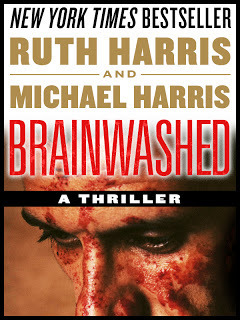 Kindle | Nook | Kobo | iBooks
Kindle | Nook | Kobo | iBooks
Published on June 20, 2013 04:22
June 13, 2013
Fiction: Then & Now. A NYT bestselling author looks back—and forward.
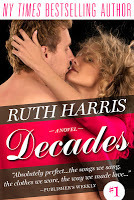 Kindle | NookWith the advent of ereaders and ebooks, publishing has changed and so has fiction. My TradPubbed books are longer (much) with more description, more character analysis, more scene setting and context. The story is narrated, that is, "told" by the author, rather than shown. My front list books are shorter, sleeker, snappier.
Kindle | NookWith the advent of ereaders and ebooks, publishing has changed and so has fiction. My TradPubbed books are longer (much) with more description, more character analysis, more scene setting and context. The story is narrated, that is, "told" by the author, rather than shown. My front list books are shorter, sleeker, snappier.DECADES was my first "big" book, published in 1974 by Simon And Schuster in hard cover and in a million-copy mass market paperback edition by NAL in 1975. The book was a big seller in hard cover, coming in just below the NYTimes bestseller list which had only ten titles at that time. There were no paperback bestseller lists in those days but DECADES was one of the most successful mass market titles of the year.
The reviews were stellar—back then, book clubs, magazines and newspapers had book sections or members' newsletters and employed professional reviewers.
“Powerful...A gripping novel.” — Women Today Book Club“The songs we sang, the clothes we wore, the way we made love. DECADES will have three generations of American women reliving their love lives and recognizing ruefully and with wry affection just what changes have overtaken them. The characterizations are good and the period atmosphere "absolutely perfect.” —Publisher’s Weekly“Three generations of women are succinctly capsuled in this novel by a writer who has all the intellect of Mary McCarthy, all the insight of Joan Didion. Rarely have attitudes been so probingly examined. Tough, trenchant, chic and ultra-sophisticated, Ms. Harris recreates the decades in which her heroines lived, from zoot suits and Sammy Kaye, through Eisenhower, Elvis and poodle-cut hairdos to moon walks, Mick Jagger and micro-minis. A brilliant book!” --Fort Worth Star-Telegram“Evokes the feelings of what it was like to grow up female in the innocence of the 40’s, the movie-formed dreams of the 50’s, the disillusion of the 60’s. It’s all here—the songs, the headlines, the national preoccupations, even the underwear.” —New York magazineAfter thinking about the changes in fiction styles over the years, I decided to do a complete rewrite/revision of DECADES for today's readers. So far, I've cut 25K words from the original 111K and here's what I took out:1970's slang today's readers might not recognizenon-essential supporting characters (they provided depth & dimension)edited down descriptions to make them shorter and less detaileddeleted many (but not all) topical referencesemphasized "showing" instead of "telling"The story is set in the post-WWII 1940's, the man-in-the-gray-flannel-suit 1950's, and the don't-trust-anyone-under-thirty, make-love-not-war 1960's. I retained the basic themes—love, marriage, family, ambition and generational divides—since the fallout from these tumultuous decades continues to impact us today.
What did stay the same? The characters' emotions as they struggled, changed, acted and reacted to the
immense cultural and social upheavals taking place around them, affecting every aspect of their personal and professional lives.
When I finish, I will publish this newly revised edition of the book as DECADES 2013 and will make both editions available in ebook editions. I think of them as Classic Coke and Diet Coke. I suspect some readers will prefer the older, more immersive style, while others will be drawn to the newer pared-down approach.
I'd love to know what you think. Am I spinning my wheels? Or is creating two editions of the same book a service to my readers?
Published on June 13, 2013 04:31
June 6, 2013
Rejection: (most of the time) it's not personal.

I was an editor for over 20 years (Macmillan, Bantam, Dell) and Publisher of Kensington so let me put rejection into at least a little perspective. Let’s be clear: Manuscripts get rejected; not writers. (Most of the time) it’s not personal so let me count the ways.
THE BASICS: The reasons for rejection start with the basics, ie the ms sucks. Author can't format/spell/doesn’t know grammar, is clueless about characterization, plotting and pacing. Maybe, though, it's not that bad and with competent editing, it's publishable but the days of Maxwell Perkins are long gone. Staff editors, these days, don't have the time so if you need a editor, hire one.
WILDLIFE ISSUES: Occasionally, other hazards present themselves. Way back when I was a child working at Bantam, a would-be author showed up at the office, manuscript box in hand. This was back in the day before armed guards were stationed in office building lobbies and people could just walk in off the street. Anyway, this guy shows up at Reception holding a manuscript box. As the least important, most expendable (what if this guy turns out to be a nut and has a gun?) warm body on the staff, I was sent out to find out what he was offering. Shook hands, introduced myself, he yackety-yacked, blabbity-blabbed about his masterpiece. Then he opened the box to hand me his treasure and a cockroach jumped out. True story. Ms rejected. Politely, I’m pleased to say.
WOW, BULL’S EYE: Timely subject, credible characters, good plot, well-executed pacing. Lots of us really like it or even love it BUT. Here’s only a partial list of the buts:
Overload : We already have too many thrillers, Regency romances, zombie epics, apocalyptic dystopian space opera fantasies. We need to trim the inventory so right now we’re not buying any of your particular genre. Sorry. Right now it doesn’t fit our needs. PMS/Testosterone poisoning : The boss (or her secretary or DH or teen-aged kid) is giving me or the editor-in-question a hard time today/this week/this month and I'm/he/she is in such a foul mood we'd turn down War And Peace. So fuddgetaboutit. You’re Tolstoy? Tough. You’re toast. Can't sell ice to Eskimos : The sales dept just informed us that books about trans-gendered pigmy werewolves in Lower Dagestan aren't selling the way they used to so we’re not going to make an offer for your (well-written, scary, hilarious, fabulous) novel about trans-gendered pigmy werewolves in Lower Dagestan. Sorry. Right now it doesn’t fit our needs. Someone you never heard of hates it : The Big Boss (or his/her wife/husband/best friend/shrink/third cousin) hates (insert genre) so be glad your ms got turned down because even if we bought it, it would be published badly. Very badly. You’ll get a crappy cover, miniscule print run, zero advertising, promotion or publicity, positioning spine-out on a top shelf in the poorly-lit back of the unventilated, un-airconditioned third floor next to the men's room. You won’t be able to find your own book. Not even with a state-of-the-art GPS. You’ll be miserable and you’ll blame us and you’d be right. So frame your rejection letter, move on and be happy. Cash crunch : Of course we’re not going to admit it but the company’s having financial problems and we’re not buying anything. Nada. Not right now and not until cash crunch passes and money’s flowing again. Bottom line: you don’t know it and you never will but your timing sucks. Not your fault. Corporate canoodling : A major “reorganization” has taken place. The decision has come down from somewhere Up There in Corporate and half the staff (at least) has been fired. A new regime is hired and they hate all the genres and authors the previous regime loved. The new regime wants to prove their predecessors were stupid, incompetent and a toxic blight to literacy and they are going to turn the company around by doing exactly the opposite. Not your fault, has absolutely nothing to do with you or your ms but your ms, the one beloved by the previous regime, is going to get turned down. OOPS : Plenty of times editors and publishers are just plain wrong. Zillions of examples of that all over the place from JKRowling to John Grisham. We turned down your book? Maybe we made a mistake. We’ve made plenty misjudgments in the past and we’ll make plenty more in the future and we know it. Turning down the book that becomes a hot bestseller is an occupational hazard. We don’t like it any more than you do but it’s a fact.
WE HATE YOU: Once in a while, rejection is actually personal. We’ve published you before or a friend at another publisher has and we know from experience (or the grapevine) that you’re a whiny, demanding, narcissistic, high-maintenance PITA. No one wants to take your phone calls and everyone who’s had the misfortune of working with you hates you. We’ve had it with you and your diva-like tantrums and we’re never, ever, ever going to publish another book of yours again. Except, of course, if you’re making us boatloads of money. Even then, we still hate you and we’ll tell everyone (off the record, of course) that your books “aren’t as good/aren’t selling as well as they used to.” Payback is a bitch.
Just like a lot of things, rejection isn’t always what it seems and writers need to put those rejection letters into perspective. After all, I once got a form rejection letter for "best contemporary" Romantic Times winner, HUSBANDS AND LOVERS while it was on the NYT bestseller list. No kidding. Who knows why? I didn't then, don’t now and never will. My agent and I LOL'd and I went back to work on my next book.
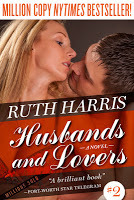 Kindle | Nook
Kindle | Nook
Published on June 06, 2013 04:44
May 30, 2013
Crab cakes, baybee. Quick, easy, super delicious!
 This post was inspired by a twitter exchange about crab cakes with
This post was inspired by a twitter exchange about crab cakes with@Chris PetersenTx. So, Chris, this one's for you...
Must be forty years old anyway, but this is my Mom's crab cake recipe. Quick, easy, super delicious and pas de breadcrumbs so nothing except a thin batter to bind them. Only tip is to make them a few hours before you cook them. Put them in the fridge so the cakes have time to firm.
I cook them in Mom's cast iron pan. More than forty years old and so well seasoned nothing sticks to that sucker.
1 egg2+ tablespoons mayo3 tablespoons self-rising flour (I use a little less)handful chopped parsleyhot sauce to taste (Tabasco, Caribbean hot sauce, Worcestershire, etc)1+ teaspoon mustard (I use Maille)1 pound lump crabmeat
Beat egg, stir in mayo. Whisk in flour, parsley, mustard, hot sauce. Add crab, toss lightly, just enough to (sort of) hold together. Form into cakes (they will look sloppy and lumpy), press lightly with pancake turner to flatten, put into fridge to firm.
When ready to cook, let the pan get hot. Then add oil and butter. Let the oil and butter get hot. Add the crab cakes. Two or three minutes on each side and you're done. Makes 4-6 cakes.
That's it. Sometimes I add jalapeño slivers if I have them.
I serve with a simple dill sauce, cucumber salad and a baguette. Plus white wine. In our house, usually Vermentino.
I made this the other night, didn't take a photo because I didn't know I was going to post about it (blames Chris), but this is what they look like: lumpy, semi-falling-apart with big hunks of crab. What they taste like: Pure crab deliciousness.
Million-copy bestseller MODERN WOMEN by can-you-guess-who? is currently on sale for 99c. The Cleveland Plain-Dealer called it "Funny, sad, vivid, raunchy." The Chicago Sun-Times said: "Sharply and stylishly written. Harris writes with intellect, insight and humor." I'm pretty sure others might have said something else but fortunately I don't know what it is. :-)
The 99c price won't last forever so if MW sounds like it's for you, now's the time to grab it.
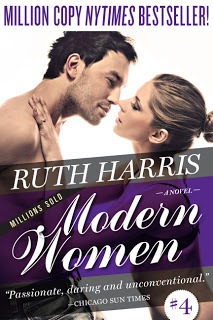 Kindle | Nook | Kobo | iBooks
Kindle | Nook | Kobo | iBooks
Published on May 30, 2013 05:04
May 24, 2013
How and why a NYC girl came to write a book about a baby rhino.
ZURI—the word means "beautiful" in Swahili is a story with an unusual setting: an animal orphanage in Africa—and I’m a million-copy New York Times bestselling author of women’s fiction and, with my husband, thrillers. I live in New York City, have never been to Africa and have never seen a rhino except in a zoo, so what happened?
The initial spark for ZURI, which reviewers have called “masterful” and “wonderful,” was set by an unplanned convergence between the movies, my news junkie habits inherited from my Dad and my love of animals.
The movie, Out Of Africa, is based on the memoirs of the Danish writer, Isaak Dinesen who is also known as Baroness Blixen. Set in Kenya in the early 1920’s. the film stars Meryl Streep as Isaak Dinesen, and Robert Redford as a white hunter. One of my favorite movies, I watch Out Of Africa every now and then and had just seen it again when, while casually flipping thru TV channels one evening, I happened to see a clip of a baby rhino. I was blown away by the little rhino’s appeal and gracefulness.
Baby animals never fail but a rhino? Could a baby rhino actually be adorable? Yes, indeed. Very much so.
 Kindle | Nook
Kindle | NookI was also aware via newspaper and internet articles that poaching had become an extremely lucrative international crime. The slaughter of rhinos and elephants is decimating the wildlife populations of Africa to the point where they are now endangered species. Between the glamor of Africa, the vulnerability and appeal of helpless animals and the sweeping Streep-Redford romance, the germ for the book was firmly planted.
The need for research was obvious. I had to find out about the people involved in the dangerous work of animal rescue and protection, the newest scientific discoveries in animal communication as more and more is learned about their high intelligence, the gory reality of poaching and the ruthless criminal gangs who profit from its bloody endeavors.
Then there were the details of rhino husbandry and veterinary, the amazing work being done by African animal orphanages, the risks involved in wildlife care, the details of rhino and elephant behavior—Zuri, the orphaned baby rhino who is the story’s heroine, meets elephant and other animal friends at Kihali. I also needed to find out about the local language, Swahili, Kenyan cuisine & wedding rituals—and I needed to use my research in a way that fit in naturally with the narrative flow of the book.
The research was fascinating. Did you know that the illicit trade in wild animals is third only to the illegal trades in drugs & weapons? Or that rhino horn—it’s actually keratin, the same material found in feathers and nails—is thought to cure cancer, maintain sexual vigor and is considered a miracle medicine in Asia, although it is, in fact, of zero medical value? The price of rhino horn, driven by demand in booming Asian economies, is now more expensive than gold as is the ivory from elephant tusks, used not for “medicinal” purposes but to make carved trinkets.
Inspired by Out of Africa, I also wanted to include a love storyl. Therefore: Renny Kudrow, the sexy scientist and expert in animal communication, who is the moody Alpha hero. Renny is the Director of Kihali and Starlite Higgins is his newly-hired vet, a talented doctor who hides a horrifying secret.
Their relationship gets off to a rocky start when Starlite panics and almost causes Zuri's rescue to fail. The two who must work together to save Zuri and the other animals in their care must also work their way through their initial very rough beginning to a much-deserved happily-ever-after ending.
By the time I finished writing ZURI, I thought of the book as love story in its broadest sense, meaning the love of beauty, love of nature, love of animals, and, of course, the romantic and transformative power of human love.
Published on May 24, 2013 14:41
Loooong weekend!
Published on May 24, 2013 05:56
May 16, 2013
Readers! Writers! Here's a how-to unlike any you've ever read: The Creative Habit
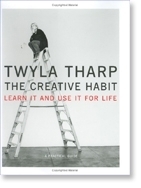
I rarely write reviews but want to make an exception for a book called THE CREATIVE HABIT by the choreographer Twyla Tharp. Writers, those who want to write, artists, dancers and "everyday people" will find help and inspiration in its pages.An elegant book physically, pleasing to the eye and the hand, THE CREATIVE HABIT is generous, authoritative, intelligent and well written. Each page brims with practical advice, specific how-to’s, questionnaires and exercises about how to:
open your mindovercome feardeal with failuredefeat distractionclarify your thinking
Ms. Tharp offers valuable advice, based on her own experience about how make your way through confusion and had to find solutions when you know something’s wrong but don’t even know quite what the problem is—the last an issue that regularly comes up, at least for me, in the course of writing a book.Using a wide-ranging set of examples ranging from Homer to Proust, from Ulysses S Grand to Ludwig Wittgenstein and Pope LeoX, from Merce Cunningham and George Balanchine to Ansel Adams, Raymond Chandler, Mozart and Yogi Berra, TCH offers a detailed road map how to define your creative identity. Practical, down to earth and never flinching from the daily nitty-gritty, Ms. Tharp explains the importance ofroutineritualsetting goalshow to know the difference between a good idea and a bad idea
She also addresses the common, but difficult dilemma facing creative people who must recognize ruts when they’re in one and she offers explicit guidelines about how to get out of them.Of special interest to baby boomers (and we're all going to be there one day!) is her candid description of the impact of aging—in her case particularly significant since, as a dancer and choreographer, her life is all about physical expression and movement. She talks about her recognition of the decrease in stamina, the need to set new challenges and explains how she turned the same brutal honesty on herself that she relies on to guide her dancers.She tells how she changed her approach and work habits when, moving through her fifties, she recognizes she isn’t the same dancer she’d been twenty years before and confronts the need to change. She describes what, specifically, she did to make the transition from habits that had served her well for two decades to establishing new approaches that turned the reality of aging into an absorbing challenge.You will find out about the value of “doing a verb” and about building a bridge to the next day, about the relationship between failure and success, the miracle of second chances and what to do when denial is no longer an option. It is hard for me to imagine anyone who won’t learn from or be inspired by a book that is part memoir, part manual, part how-to.
Published on May 16, 2013 05:02
May 9, 2013
A NYT bestselling author shares: 6 Things Pro Writers Taught Me About Writing
 Before I was a NYT bestselling author, I was an editor (Dell, Bantam, Kensington) and worked with lots of writers. Some work first thing in the AM, others in the PM, some don’t get started until midnight. Some write sober, some don’t. Some write on a computer, some on legal pads, and these days some write on tablets. Some edit as they go along, perfecting each sentence before going on to the next. Some keep strict, almost corporate office hours, some write irregularly but in hot rushes of productivity.Others power through a first draft as fast as they can, then go back to edit and revise. Some outline in detail; some prepare elaborate storyboards, others work from a jotted list of scribbled notes; still others let the characters do the work. Some brainstorm the plot with a trusted friend, spouse or editor. Some work with a crit partner getting comments and guidance along the way; others won’t let anyone see their work until it’s finished.Bottom line, there’s no ONE way to get the job done.
Before I was a NYT bestselling author, I was an editor (Dell, Bantam, Kensington) and worked with lots of writers. Some work first thing in the AM, others in the PM, some don’t get started until midnight. Some write sober, some don’t. Some write on a computer, some on legal pads, and these days some write on tablets. Some edit as they go along, perfecting each sentence before going on to the next. Some keep strict, almost corporate office hours, some write irregularly but in hot rushes of productivity.Others power through a first draft as fast as they can, then go back to edit and revise. Some outline in detail; some prepare elaborate storyboards, others work from a jotted list of scribbled notes; still others let the characters do the work. Some brainstorm the plot with a trusted friend, spouse or editor. Some work with a crit partner getting comments and guidance along the way; others won’t let anyone see their work until it’s finished.Bottom line, there’s no ONE way to get the job done.No matter where, when or how writers write, though, professional writers have taught me the following:
Let yourself go. Don’t kill your darlings, kill your inhibitions instead.
Get rid of the inner censor, that stern, humorless second-guessing nay-sayer that kills your ideas before they’re born. That killjoy is telling you your idea is too outrageous, too unbelievable, too OTT to see the light of day?
Don't listen. Tune him out, shout her down.
Don’t quash that zany/loony/nutty idea; instead, let it rip. Play with it and see where it goes. The “unspeakable,” the “unbelievable,” the OMG! “you can’t write that,” are exactly the ideas that lead to the fresh, original breakthrough. Considering every possibility, no matter how OTT, is the reason TV writers’ rooms are noted for Raunch & Irreverence. The reason? R & I break through the conventions, the “should’s, don'ts and can’ts” that destroy creativity.
Learn to edit yourself.
Heresy coming from a former editor, I know, but professional writers are often excellent editors of their own work. After years of experience, they have learned to recognize their strengths and weaknesses and figured out effective work-arounds. Their approach is practical: what works stays, what doesn’t work hits the cutting room floor; aka the delete button.
The ability to self-edit comes with time and experience but it’s a goal for beginning writers to keep in mind. Consider your book from the POV of a marriage, not a hot affair. Spouses get to know each other very well, are aware of all the plusses and minuses and still love each other. Take off the rose-colored glasses of passionate romance, marry your book instead and live happily ever after.
Butt in chair. Feet on ground.
Most of the professional authors I’ve known don’t clutter their minds with undefined notions of “relevance,” “significance” or “art.” Instead, they are experienced, disciplined and competent storytellers and entertainers who understand that craft matters.
Great books are about characters, plot, setting, if “art” is the outcome, so much the better but, as in building a house, don’t rely on a gauzy fantasy when what you need is a hammer and some nails.
Master your genre.
Successful writers whether of horror, romance, thrillers or mystery study their genre. They know what their readers expect and they do NOT let them down. Period.No unhappy endings for romances. Readers want the HEA & that's what the pro delivers.No “revelation” at the end that the whole book, the characters and their trials and tribulations, was the MC’s dream. We're talking compelling fiction here, not a shaggy dog story.No tearing up in tough-guy noir. Hard edges, dammit!No weepy heart-to-heart confessions in action thrillers. Paranoia is the WTG because paranoia works & paranoia is what the reader wants. Disappoint him or her at your peril.
Don't think you can reinvent the wheel. Pros know better.
Rescue yourself.
One of the great old-time pulp writers (200+ books) once told me “Each book is a pain in the ass in a different way.” What he meant was that at some point each one is going to present a problem.A plot going nowhere.A boring/clueless/addled/DebbieDowner character.Too much/not enough background/research.Too long.Too short.You name it, sometime, somewhere in the course of writing a book, you will most likely get stuck.Professional writers have learned how to bail themselves out. Whether it means going back to the beginning to hunt down the problem, a light rewrite, some strategic revisions, a personality transplant (for a character, not the writer—lol), the pros have learned how to deal with the glitches, get themselves out of trouble and get back on track.
Write. Write a lot. Then write some more.
Seriously. Professional writers turn out copy, they meet deadlines, they get the job done and the more they write the better they get. Same with any job, career or profession.
Do you want a surgeon who’s just out of med school or one who’s done hundreds of knee/hip replacements? See what I mean?
Super terrific, fabuloso, mega great deal!Park Avenue Series, Books 1-3Millions sold!Boxed set now only 99c.
Decades: "Absolutely perfect!"Husbands And Lovers: RT winner, "Best Contemporary."Love and Money: "Richly plotted, races to a shocking climax."
 Kindle | Nook
Kindle | Nook
Published on May 09, 2013 05:53




